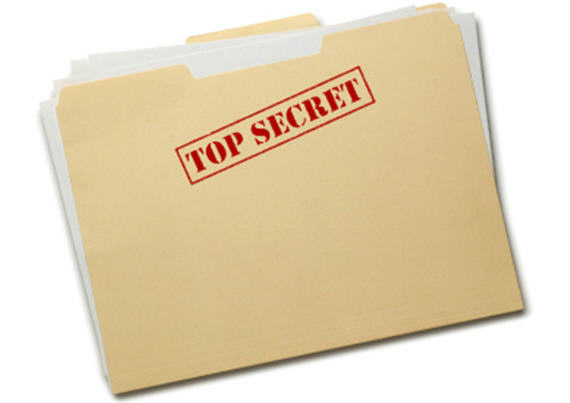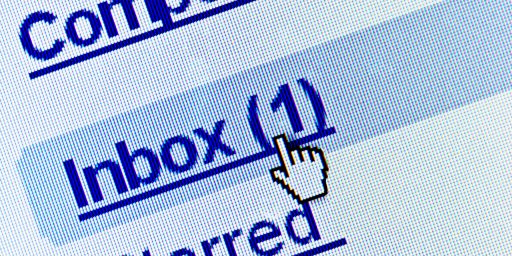Ethics of Publishing ‘Private’ Emails
Do journalists have any expectation of privacy in their emails?
In the context of today’s brouhaha over Dave Weigel, who resigned from the Washington Post after publication of some emails he’d sent to the now-defunct Journolist made his old job untenable, commenter Steve wonders, “So James, what if someone gets hold of your old Emails? Should we have a hunting expedition and make all journalists Emails fair, or unfair, game? How about pundits?”
I’ve surely emailed some embarrassing things to one or two people. Never, intentionally at least, to a list. And, generally speaking, I’m pretty careful what I put into writing.
Should we have a hunting expedition and make all journalists Emails fair, or unfair, game? How about pundits?
There’s a distinction to be made between hacking and other forms of theft and betrayal by the intended source. If I send you an email and you then publicize it, you’re quite possibly a jerk. If you hack into my private email account to look for dirt, you’re a criminal.
In the case of a reputable journalistic outlet getting ahold of the latter by secondary means — ie., they didn’t commission the theft — I think ethics would require them to weigh very carefully the propriety of airing them. Only in the most dire public interest circumstance would that be permitted.
I’m not sure that the same holds true, though, if they obtain the emails from someone entitled to possess them and the sender of said emails is a public figure.







Unless encrypted and strictly sender to single recipient email isn’t private. The technology precludes it. If you send something embarrassing even to a discrete friend it could be intercepted and publicized. Consequently, prudence dictates that we send nothing by email we wouldn’t want posted on the bulletin board at work.
A listserv, a group email mailing list, is even worse. All it takes is one person accessing the individual emails or aggregated emails of the listserv from a public computer and the whole shebang can be compromised.
A secret is something you keep to yourself. If you absolutely must, tell one other person.
You know, these new conditions remind me why we used pseudonyms for posting on the Internet back in the day – and why many of us still do it today. It’s obviously no complete guarantee of safety, but at least I can be sure that none of this will end up in a potential employer’s hands if they google my full name.
You know, these new conditions remind me why we used pseudonyms for posting on the Internet back in the day – and why many of us still do it today.
Conversely, publishing under your own name — and following Dave’s advice above — should make one less likely to spout off unwisely. Not that I don’t wind up posting things that, on reflection, I wish I hadn’t. But it does give me at least some pause before hitting “publish.”
Ezra Kleim may say it’s been shut down, but it hasn’t been shut down, not yet anyway.
http://groups.google.com/group/journolist/
Ah, James, just wait until I release to the public all those things you have said about Wade Phillips over the years!
What’s good for the gander…
Ah, James, just wait until I release to the public all those things you have said about Wade Phillips over the years!
Indeed. Of course, I’ve blogged many of those thoughts, too.
“Only in the most dire public interest circumstance would that be permitted.”
Like the Weigel comments or ClimateGate? I think the cat is out of the bag. I suspect that we will see anything acquired being published. If not by WSJ or NYT, then by Drudge or HuffPo. Then the major organizations will not be able to ignore them.
Steve
I agree with Dave, and would add that if you are doing anything through someone else’s computer (such as, your employer), the idea of privacy is removed another step.
I don’t know anything about journalistic ethics. I don’t know that such a thing exists.
If a journalist learned through the Journalist that the whole interview in the Rolling Stone was a contrived affair (to ends which my imagination cannot supply), would a real journalist abide by some unwritten code of ethics or publish news?
steve, I believe the cat was out of the bag with the Pentagon papers. So long as the publisher did not acquire the “emails” illegally themselves, I don’t know that it is wrong to publish them?
In that day though, Weigel’s comments wouldn’t have been news. I’m not sure they are now. They are simply grist for discussion among us political/lifestyle commenters.
If a journalist learned through the Journalist that the whole interview in the Rolling Stone was a contrived affair (to ends which my imagination cannot supply), would a real journalist abide by some unwritten code of ethics or publish news?
I think that’s a case where one ethic trumps another and publication is warranted.
Like the Weigel comments or ClimateGate? I think the cat is out of the bag.
ClimateGate rises to that level, WeigelGate not. But, yes, the “someone published it and now it’s news” loophole ultimately makes that distinction academic.
In that day though, Weigel’s comments wouldn’t have been news. I’m not sure they are now. They are simply grist for discussion among us political/lifestyle commenters.
It’s “news” in the sense of the blogosphere and meta-media discussions because Dave’s well known in those circles and there are a lot of very interesting issues for insiders. Nobody else much cares, frankly.
It’s “news” only because some hack decided out of personal, professional, or ideological spite to screw Weigel over. And even then it’s “news” only because the Post is so terrified of pissing off “conservatives” that they have to fire one of their best once he hurt Matt Drudge’s feelings. (This would be the Matt Drudge who spent several months in the 90s proclaiming he’d soon have proof that Bill Clinton father a child with a black woman during his time in the White House — odd, no penalty for outright lying if it’s done by someone on the right.)
Weigel’s just another victim of the right-wing whining brigade, those fearless warriors who believe in torture and invasion and nuclear attacks, but scream like stuck pigs if someone says something less than worshipful about their loser gods Drudge, Rush, and Palin.
There is a written code of ethics for journalists. That so many journalists are de facto unethical just emphasizes that journalism remains a craft rather than a profession.
Another take on this story is that Weigel is younger, raised in the Internet age, and like many of his peers is dealing with the reality that whatever you put on the Internet is eventually available and forever. (Maybe he can come to my daughters grade school and talk to the eighth graders.) In many ways the Internet has made the world into one giant small town. Like small rural towns of yore, if you slept with the football team or got drunk and called the pastor an a**, it was known about you for the rest of your life, unless you moved away. Now you can’t move away.
I read an amusing science fiction short story recently(*). It was set in a Canada after the fall of American to a certain fame and reality-tv based depravity.
Anyway, the amusing solution in this story was that everyone in Canada had a public name and a private name. They could “create’ on-line with the public name, but it was a crime to link the two.
Not that this story has the solution, but I’d say that when stories like that come out things are in flux. We don’t know yet what the standards and mores of this and near-future media will be. I scoff at people who want to put their particular preference on the group (particularly when those people have an incomplete view of authorship through history).
My personal view is that multiple (consistent, honest) personnas are fine. They are what we wear in the real world, anyway. We don’t tell the supermarket checker our life history. There is no reason the online vendor of the moment should have it either. They also have a rich, literary, history.
* – http://www.amazon.com/Darwins-Bastards-Astounding-Tales-Tomorrow/dp/1553654927
BTW, if this guy was using the same “personna” in these two places, then he was explicitly binding the two. He was building a brand with the content of both.
(I wonder how many people are out there posting “first-name last-name” and _not_ out to build a brand?)